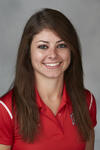In The News: Division of Health Sciences

The science is looking pretty unanimous on this one: Drivers of expensive cars are the worst.
Come on premium car drivers... don't conform to stereotype.
Drivers of more expensive cars are less likely to stop for people on foot trying to cross the street, a new study found. They also yielded less to men and African Americans, though that difference didn’t reach statistical significance.

The increasing number of cases of coronavirus being diagnosed around the world has prompted fears that the outbreak will become a “pandemic”.
How to get comfy with bumps in the road toward our goals.

The Southern Nevada Health District is monitoring an undisclosed number of Clark County residents who recently returned from China for the new coronavirus, the public health agency said Monday.
Fear of the spreading coronavirus has led groups around the world to abandon niceties and recommend against handshakes, which are now discouraged at next month’s Mobile World Congress in Barcelona where high-profile companies are already dropping out due to coronavirus concerns. The gesture is also reportedly unwelcome at Andreessen Horowitz, a venture capital firm in San Francisco. Even youth soccer leagues in Canada nixed post-game handshakes.
Since my research is focused on biomechanics and physiology of sports, I have had many unique opportunities related to sports.
The University of Nevada, Las Vegas (UNLV) has been named a National Center of Excellence for Nursing Education by the National League for Nursing (NLN) in recognition of their educational excellence and visionary leadership. The university was one of 10 programs nationwide to be named a Center of Excellence by the NLN, the leading professional organization for nurse educators.
Two weeks ago a massive heat wave struck two-thirds of the United States. It was hot enough to bake biscuits in Nebraska , cancel a triathlon in New York and knock out the power in Wisconsin. The pavement also probably burned a few people — and probably much worse than you might think.

Like humans, many bacteria like to spend time at the beach. The so-called flesh-eating bacteria, Vibrio vulnificus, don’t just like the beach; they need it, and rely on seasalt for survival. And as with human beachgoers, the warmer the water, the more of them there are.
The Cleveland Clinic’s fourth annual Alzheimer disease (AD) drug development pipeline presents a new round of clinical trials to give clinicians a comprehensive look at current research in the US. The investigators, led by Jeffrey Cummings, MD, ScD, director emeritus of Cleveland Clinic Lou Ruvo Center for Brain Health, identified all pharmacologic Alzheimer trials currently in development from Clinicaltrials.gov. They found 132 agents currently in 156 clinical trials— 28 of which are in 42 phase 3 trials; 74 in 83 phase 2 trials; and 30 in 31 phase 1 trials.


